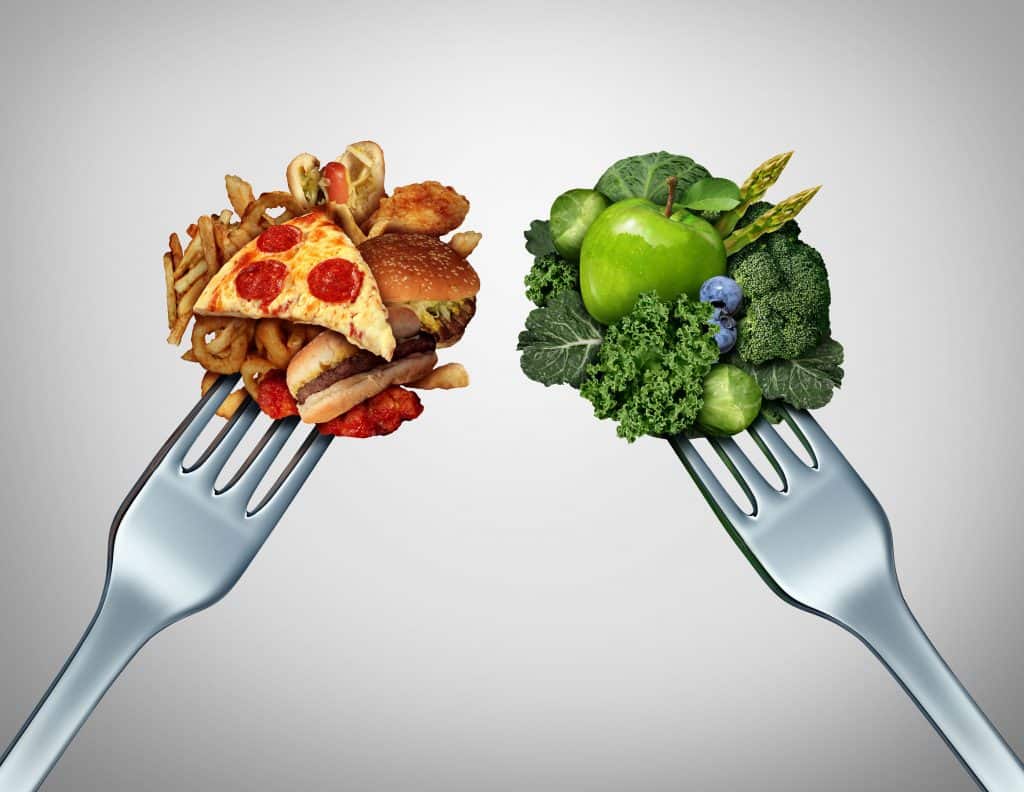7 Things To Know About Cholesterol
Posted by Mike Sonneveldt - See Editorial Guidelines (Last Updated On: Mon Feb 12 2024)

We want to give you 7 things to know about cholesterol. But that merely scratches the surface. Knowing about cholesterol stands as a basic, yet misunderstood building block of health. We tend to know about reaching a target range of cholesterol, though few of us know what that is. Most of us also know that too much cholesterol can be a bad thing, but a lot of us are in the dark when it comes to the specifics of how to deal with it. Cholesterol does not have to be a confusing, complex topic.
We at Prescription Hope want to help by providing 7 things to know about cholesterol. We think you should know about cholesterol and how it plays such an important part in our bodies. It is vital to get a clearer picture of what cholesterol is, what it does, how to handle it, whether you are taking a high cholesterol medication, affordable statin drugs, or changing your lifestyle.

1. The Stats
The CDC reports that between 2017 and 2020, 10% of adults aged 20 or older had total cholesterol levels above 240 mg/dL, while about 17% had HDL cholesterol levels below 40 mg/dL. About 86 million US adults aged 20 or older have total cholesterol levels above 200 mg/DL, putting them into a category of high cholesterol.
In general, 10% of Americans are dealing with high cholesterol, which puts them at risk of heart disease, stroke, and death.
However, Americans continue to make progress. The CDC also states that about two-thirds of American adults report having their cholesterol checked within the last 5 years.
Finally, about 47 million Americans, or about 55% of adults in America who could benefit from high cholesterol medications are currently taking them. This means that the message is getting out and Americans are doing what is necessary to combat high cholesterol. In doing so, each American can help fight heart disease and stroke. Knowing the statistics is just 1 of the 7 things about cholesterol everyone should know.
2. Cholesterol Is A Fat
Cholesterol is a lipid type of fat, meaning it is mostly insoluble in water. To get a better picture of this, think of fats that are solid at room temperature. Lipids could also be oil that is liquid at room temperature. These do not dissolve in water; however, they pack an energetic punch. Cholesterol is important as a structural component of cell membranes, useful as a storage of energy, and important in functioning as an aid in producing and regulating hormones. We think that knowing about cholesterol and how the body makes it stands as one of the most important of the 7 things to know about cholesterol.
While we tend to believe that all fats are bad, they are necessary for our body to function properly. In fact, they are so necessary, that our body can produce approximately 1,000 mg needed for digestion, development of cells, and hormone production. Not only can most of your cells produce cholesterol, but the liver itself can produce cholesterol and metabolize excess cholesterol.
3. Cholesterol Is Not A Single Measurement
You may have seen the readings on a cholesterol test, not knowing exactly what you were looking at. It is important to get an understanding of what these tests mean, adding to the list of 7 things to know about cholesterol. When getting a lipid panel (a blood test measuring the amount of lipids in your blood), you will notice the panel measures four distinct kinds of cholesterol and a measurement of your triglycerides. The lipid panel will give you:
- Total Cholesterol: This number is the total amount of cholesterol in your blood. The formula to calculate your total cholesterol is your HDL+LDL+20% triglycerides.
- HDL: High-density lipoprotein is the good cholesterol that transports extra cholesterol from your bloodstream to your liver. Doctors determine HDL as good for a simple reason. It helps your arteries clear out the unneeded cholesterol.
- LDL: Doctors label Low-density lipoprotein as “bad” cholesterol, due to plaque buildup in your arteries. Even though you do need some LDL’s in your body, too many can cause major health issues.
- VLDL: Very-low density lipoprotein. Just like LDL, VLDL gets the “bad” cholesterol status, due to its role in plaque buildup. VLDLs carry triglycerides in your blood, meaning that those extra fats can build up into plaque in your arteries and strain blood flow.
- Triglycerides: This type of fat comes from the food we eat. When our triglycerides are too high, we run the risk of cardiovascular disease and pancreatic inflammation.

4. How To Read a Lipid Panel
When you get a lipid panel, you may wonder what the numbers mean. Tests measure cholesterol in milligrams of cholesterol per deciliter of blood, or mg/dL.
Recommended levels of cholesterol for men over 20:
| Total Cholesterol: | 125 to 200 mg/dL |
| Non-HDL Cholesterol: | Below 130 mg/dL |
| LDL Cholesterol: | Below 100 mg/dL |
| HDL Cholesterol: | At or above 40mg/dL |
Recommended levels of cholesterol for women over 20:
| Total Cholesterol: | 125 to 200 mg/dL |
| Non-HDL Cholesterol: | Below 130 mg/dL |
| LDL Cholesterol: | Below 100 mg/dL |
| HDL Cholesterol: | At or above 50 mg/dL |
Doctors use ranges of mg/dL to determine whether a person is in the near-optimal range, borderline high, high, or very high.
Total cholesterol levels:
| Near-Optimal: | Under 200 mg/dL |
| Borderline High: | 200 to 239 mg/dL |
| High: | 240 mg/dL or higher |
Non-HDL Cholesterol levels:
| High: | 130 mg/dL or higher |
LDL Cholesterol levels:
| Near-Optimal: | 100 to 129 mg/dL |
| Borderline High: | 130 to 159 md/dL |
| High: | 160 to 189 mg/dL |
| Very High: | 190 mg/dL |
5. Everyone Needs To Be Aware of Their Cholesterol Levels
Misconceptions run rampant with cholesterol levels. Some believe that only adult males need to be concerned about their cholesterol levels. In fact, women and children need to be aware of testing too. Out of the 7 things to know about cholesterol, testing remains as one of the most important for everyone.

High cholesterol happens from more than just lifestyle. Genetics play an important role too. This makes it important to pay attention to your child’s cholesterol. Evidence points to a build-up of plaque in the arteries beginning in childhood and a progression of that buildup into adulthood. This can lead to coronary heart disease, which is the leading cause of death in the United States, as reported by The American Heart Association.
Not only are children susceptible to the damage high cholesterol can cause, but women are also at risk of cardiovascular disease due to high cholesterol. While estrogen is linked to raising HDL in women, and therefore offering some protection against high cholesterol, postmenopausal women can see their cholesterol levels rise. Women may see their levels rise despite a healthy diet and plenty of exercise, making it necessary for all Americans to get checked.
6. Lifestyle Change is Important No Matter What
If you are running the risk of high cholesterol, taking immediate action can be extremely helpful. Eating a heart-healthy diet along with at least 150 minutes of moderate to vigorous aerobic exercise a week can help control your cholesterol levels and keep them within a healthy range.
But what if you are taking medication?
Medications can help control cholesterol levels, but including diet and exercise is still the best way to reduce your risk of stroke and heart disease.
7. What About Medication For My Cholesterol?
Out of the 7 things to know about cholesterol, medication is one of the most important. Many medications for high cholesterol exist. However, statins stand as a major recommendation to effectively lower lipids.
Statins are called reductase inhibitors. They act in the liver to prevent cholesterol from forming. This reduces cholesterol circulating in the blood and helps prevent plaque buildup. Statins work on lowering LDL (bad) cholesterol, as well as lowering triglycerides while raising HDL (good) cholesterol.
You may recognize some of the more popular names of statin drugs, such as Lipitor, Mevacor, and Crestor.
Sometimes, a statin alone might not be enough. At that point, other medications are available. These include Ezetimibe, such as Zetia. Ezetimibe prevents cholesterol from being absorbed into the intestine. It is the most commonly used non-statin agent.

Bonus Fact: Getting Your Medication Does Not Have To Be Expensive
Statins and other medications can be extremely expensive, but do not have to empty your wallet. No American deserves to have to decide between their medications or their bills. If you are searching for affordable cholesterol medication or affordable statin drugs, then we want to help.
When your doctor helps you determine the right affordable statin drugs or affordable prescription medication regimen for your cholesterol, simply go to our website and become familiar with our services. Then, fill out our online enrollment form. After you submit your enrollment form, Prescription Hope will determine based on the information provided whether we can pre-qualify you.
Once you qualify and we receive all of the requested paperwork from you and your healthcare provider, your first delivery of medication typically comes within 2-4 weeks. Plus, once we approve you, we manage your order refills!
Your high cholesterol medications and other affordable prescription medications typically arrive in a 90-day supply. They come directly to your home or healthcare provider’s office, depending on the requirements of the pharmaceutical company that ships your medication.
Prescription Hope
Prescription Hope loves to help those with high cholesterol get their affordable statin drugs and other low-cost prescription medications they need at a reasonable monthly rate per medication. We wish for every member to live without the stress and worry of paying too much for their vital prescriptions.
We provide a simple, consistent monthly rate of $60.00 per medication for over 1,500 medications. This means that not just people with high cholesterol can benefit from what we offer.
If you have been diagnosed with high cholesterol and are looking to lower your medication costs, then please visit us at www.PrescriptionHope.com to learn more about how we can save you money every month!

